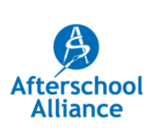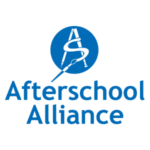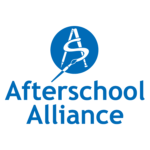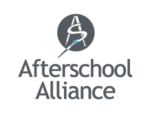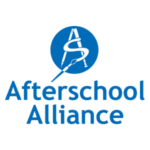Tony Proscio and Basil J. Whiting (October 2004)
In the last decade, initiatives to create, expand, and improve afterschool services for young people have become more typical in large cities across the United States. However, the field is still nascent and tremendous challenges remain. Co-authors Proscio and Whiting provide in-depth studies of four cities—Chicago, Los Angeles, New York, and San Diego—who have, over time, developed highly effective afterschool support organizations. While each city's story is set in a unique political and social landscape, there are common elements in their profiles that the Project believes are fundamental to their successes to-date.
This study from The National Center for Education Statistics within the Institute of Education Sciences provides a national profile of various types of formal after-school programs physically located at public elementary schools in 2008. These programs included stand-alone programs that focus primarily on a single type of service (e.g., only day care) and broad-based programs that provide a combination of services such as academic enrichment and cultural activities.
This study looks at the factors contributing to PCAST (Parental Concern about After-School Time) and the consequences for both parents and employers.
Afterschool Alliance is an organization dedicated to increasing the availability of after school programs. Information is available on policy and research, facts and research, Lights on Afterschool, Advocate Newsletter, and resource links.
Election season presents an important opportunity to put afterschool on the radar of policy makers and the public in a visible and meaningful way.
The resources in this toolkit will help you spark conversations about afterschool with candidates for office in your local community or state. Included are talking points, sample materials, and information on how your non-profit organization can participate in the electoral process.
In research posted in April 2024, Afterschool Alliance presents survey findings showcasing 1,116 participating after school providers. These findings suggest that after school programs do support learning recovery post-COVID19, but continue to struggle with staffing and program costs.
While state and federal funding have helped to alleviate the challenges associated with cost, the diminishing funding may impact current staffing (reduction of personnel) and programming (reduction in program offerings), reducing access for at-promise children who need it.
(2004) In order to learn how many children are in afterschool programs and how many are unsupervised after school, in the summer of 2003 the Afterschool Alliance conducted a household survey, with funding from the JCPenney Afterschool Fund. The America After 3 PM survey gives the most comprehensive and accurate picture yet of what this nation’s youth are doing each day after school. It differs from other household surveys in that it includes data on K-12 youth, rather than just K-8 youth. This survey also collected more detailed information about parent satisfaction with afterschool programs, and it offers the best data yet about demand for afterschool, including the likelihood that non-participating children would join afterschool programs, if programs were available.
Since 2000, Lights On Afterschool has been celebrated nationwide to call attention to the importance of afterschool programs for America's children, families and communities.
Lights On Afterschool is a project of the Afterschool Alliance, a nonprofit organization dedicated to ensuring that all children have access to quality, affordable afterschool programs. Former Governor Arnold Schwarzenegger has served as Chair of Lights On Afterschool since 2001. Find free resources for Lights On Afterschool, including event planning themes and ideas, registration information, partner tools, art, printables & other materials for your programs, and more.
Students with special needs may not always receive the resources they need to reach their full potential during the school day, but after school programs can offer additional activities more tailored to the individual needs of children. This brief examines the valuable role after school programs can play in the life of a child with special needs.
Respectfulness, positive behavior, self-confidence, and an interest in school are just a few traits kids can develop through participation in after school programs. Check out this issue brief to learn more about ways after school can help build character.
This report summarizes a national meeting that was organized to discuss ways in which out-of-school time can be used to better prepare youth for an increasingly global economy.
With support from MetLife Foundation, the Afterschool Alliance has published "Afterschool Innovations in Brief", a compilation of four issue briefs examining critical issues facing children, schools and communities, and the vital role after-school programs play in addressing these issues. (May 2008)
Funded by the National Science Foundation, the Toyota USA Foundation, and the Mitsubishi Electric America Foundation, Afterschool Math Plus is a thematic lesson plan that covers four themes: ArtMath, Built Environment, Jump Rope Math, and MusicMath. Creating environments that build curiosity and create a love of learning surrounding math, these lesson plans empower students to use math in real world settings while spotlighting leading mathematicians who use arithmetic in creative ways. "When will I use this math in the world?" This question is answered throughout this resource - math is everywhere!
Need more information? Check out https://www.fhi360.org/.
In this article, the authors describe the problem of juvenile crime and discuss how participation in after school programs can benefit youth and can lead to a decrease in violence and increase child safety.
Afterschool snacks are a compilation of free and low-cost activity guides, books, and resources created to engage youth in STEM by learning from doing, also known as tinkering. These Snacks are a healthy, filling way to satisfy your late-afternoon hunger for science. Try building them with friends! From the California Tinkering Afterschool Network, a project of the Exploratorium.
Over one million students who enter ninth grade each year fail to graduate with their peers four years later because they drop out of school. Seven thousand students drop out of school every day, and each year roughly 1.2 million students fail to graduate from high school. More than half of these students are from minority groups. After school programs are a proven way to address the issues and risk factors that lead to dropout and provide a path to graduation and beyond.
This brief, examines the current teacher shortage facing our schools, the impact this shortage is having on our rapidly changing educational system, and ways afterschool programs can help meet the need for recruiting and retaining new teachers. It is one in a series of Issue Briefs sponsored by the MetLife Foundation that addresses the benefits afterschool programs provide to children, families and communities.
This brief explores the various ways afterschool programs create linkages between school and home for students and parents. It is one in a series of Issue Briefs sponsored by the MetLife Foundation that addresses the benefits afterschool programs provide to children, families and communities.
This toolkit is designed to help education authorities, school leaders, and teachers create thoughtful guidance to help their communities realize the potential benefits of incorporating artificial intelligence (AI) in primary and secondary education while understanding and mitigating the potential risks.
With guidance, an education system may realize the potential benefits of AI to improve learning outcomes, support teacher instruction and quality of life, and enhance educational equity. Without guidance, teachers and students can be exposed to privacy violations, inconsistent disciplinary consequences, and counterproductive AI adoption practices.
AlcoholEdu® for High School is an online alcohol education and prevention course. AlcoholEdu® for High School takes a public health approach to alcohol education in schools, incorporating evidence-based prevention methods to create meaningful results. Through this scalable online program, which has been proven to reduce negative consequences associated with underage drinking, schools can reach all students with a consistent message and empower them to make safer and healthier decisions about alcohol.



